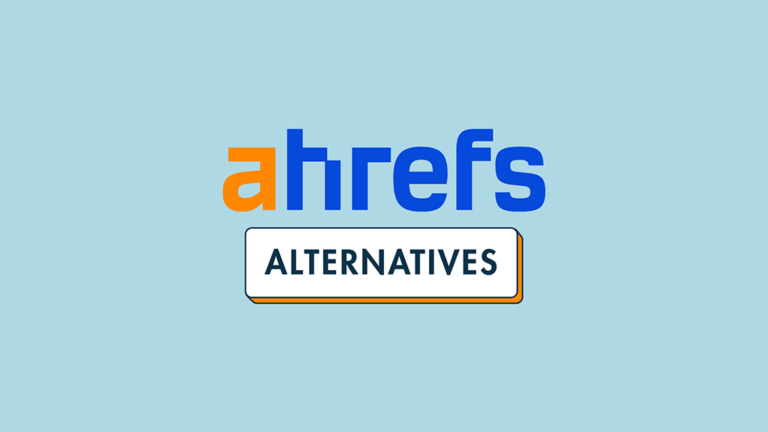If you’re evaluating Semrush alternatives—whether to cut costs, simplify your stack, or get better outcomes with less hands-on work—this guide is for you. We’ll clarify where Semrush shines, when it’s not the best fit, how to choose the right replacement, and where a managed option like RankAI can outperform DIY tools for small to medium businesses, e-commerce, startups, and local brands.
Introduction: What This Guide Covers and Who It’s For
This guide is designed for SMBs, e-commerce stores, startups, and local service businesses weighing Semrush against other options. It is also for agencies and freelancers who need scalable workflows for managing multiple sites, and for teams deciding between DIY tools and a fully managed SEO service. Inside, you’ll find a clear decision framework, pricing gotchas to avoid, and a quick way to map your primary business needs to the right category of tool or service.
Semrush at a Glance: Strengths and Gaps
Semrush's primary strength lies in its broad, mature feature set, which covers everything from keyword research and site audits to competitive intelligence and backlink analysis. Its data and workflows are particularly well-suited for competitive research and creating synergy between PPC and SEO efforts, with robust integrations and reporting for in-house teams and agencies.
However, common gaps often trigger a search for alternatives. The platform's cost complexity, with its tiered plans, add-ons, and seat limits, can become expensive as you scale. Its power also comes with a steep learning curve and requires consistent hands-on work to extract value. Critically, Semrush provides insights, but the execution—turning those insights into optimized pages or technical fixes—is still up to you. For many businesses, there is also significant feature overlap, meaning you may pay for capabilities you rarely use.
Why Consider Semrush Alternatives (and When Not To)
There are several good reasons to consider an alternative. You might be looking for a lower total cost for a more focused use case, such as managing a single site. If your team is constrained by bandwidth, you may need a solution that provides execution, not just insights—a gap that low-cost SEO services can fill. Many users also prefer the specialized depth of a dedicated tool for technical crawling, on-page optimization, or local SEO over an all-in-one suite.
Still, sticking with Semrush can make sense. If your team actively uses multiple Semrush modules daily for PPC, SEO, and PR, the platform's value is clear. It's also a strong choice if you have in-house content and development resources to act on its recommendations quickly. For some, the benefit of consolidating vendors and training around a single suite outweighs the potential savings of switching.
How We Evaluated the Alternatives
We assessed tools and services against a framework focused on real-world value. We prioritized core outcomes like growth in qualified traffic and conversions, supported by fresh data coverage across keywords, backlinks, and SERPs. We weighed the balance of depth versus ease of use, and whether a tool provided insights or bridged the execution gap with done-for-you delivery. Our evaluation also considered scalability, integrations with key platforms like WordPress and Shopify, reporting clarity for stakeholders, and overall pricing transparency, including the total cost of ownership beyond the sticker price.
About RankAI’s perspective: As a fully managed SEO agency, RankAI emphasizes outcomes and execution. We combine expert strategy with AI to deliver technical fixes, keyword research, and optimized content at a significantly lower cost than traditional agencies, making us a strong choice for businesses that want results without juggling multiple tools.
Tool Categories at a Glance: Match the Tool to Your Job
- All-in-one SEO Suites: Best for teams needing broad coverage in one place who can implement the work themselves.
- Technical SEO Crawlers: For in-depth site audits, JavaScript rendering checks, and large-scale crawl analysis.
- Content Optimization Tools: Ideal for generating on-page recommendations and briefs for writers. See our guide to create authoritative content for Google.
- Keyword and SERP Intelligence Tools: For market discovery and long-tail content planning.
- Rank Trackers: For precise position tracking across multiple sites, especially for local packs. See the top rank tracking tools here.
- Backlink Intelligence Tools: For competitive link gap analysis and prospecting.
- Local SEO Platforms: For managing listings, reviews, and GBP optimization.
- Managed SEO (Done-For-You): This is where RankAI fits. It's best for achieving outcomes with minimal internal effort, as it includes technical optimization, keyword research, content creation, and monthly reporting across platforms like WordPress, Shopify, Wix, and Squarespace.
Decision Framework: Find Your Best-Fit Alternative
To find your best fit, start by identifying your primary bottleneck. If it's a lack of time and people to execute, a Managed SEO service like RankAI is the answer. If you're missing a specific capability, add a specialized tool. Next, consider your main goal for the next 90 days. To fix technical issues or publish new content quickly, a technical crawler or a managed service is effective. To prove ROI across multiple sites, a dedicated rank tracker combined with SEO reporting tools or a managed service with built-in dashboards is ideal. Finally, assess your team's size and tolerance for learning. For small teams with low tolerance for complexity, managed services offer the most direct path to results.
Pricing and Hidden Costs to Watch
When comparing costs, look beyond the monthly fee. Watch for hidden costs from seats and user limits, which can escalate prices quickly. Project or domain caps often trigger expensive plan upgrades, while metered usage for things like AI content or audits can consume credits beyond your base fee. Be aware of add-ons for local SEO or API access. Finally, remember that the biggest hidden cost is the "execution gap"— tools don't write content or fix code. You must budget for the writers and developers needed to implement the recommendations, a cost that is included in a managed service like RankAI.
Top 15 Semrush Alternatives
While Semrush is a powerhouse in the SEO world, it's not the only comprehensive solution available, and depending on your specific needs and budget, a different tool might be a better fit. In this section, we'll explore the top 15 Semrush alternatives, each offering a unique set of features and strengths. This curated list will help you compare the leading all-in-one SEO platforms and specialized tools, enabling you to find the perfect alternative to elevate your digital marketing strategy.
1. Ahrefs

Best for: SEO teams and agencies needing deep keyword, backlink, and competitive analysis workflows.
Overview/Positioning vs Semrush
Ahrefs is a dedicated SEO suite built around market-leading backlink and keyword intelligence. Compared to Semrush’s broader marketing platform, Ahrefs focuses on organic growth tasks with fast UI, straightforward workflows, and massive link/keyword indexes. It shines for competitor research, content planning, and technical auditing while skipping PPC, social, and local extras, keeping SEOs concentrated on search performance and traffic insights.
Key features snapshot
• Keywords Explorer • Site Explorer • Rank Tracker • Site Audit • Content Explorer • Content Gap/Link Intersect
Pros
• Leading backlink index • Excellent keyword research • Fast UI • Powerful competitor tools
Cons
• No true free trial • No PPC/social/local modules • Higher per-seat pricing • Site Audit less flexible than dedicated crawlers
Pricing
Lite $129/mo, Standard $249/mo, Advanced $449/mo, Enterprise $1,499/mo; one user included; extra seats add cost.
Who it’s for / use cases: Teams prioritizing organic growth: content planning, link prospecting, audits, tracking.
Semrush vs Ahrefs quick take
Choose Ahrefs when backlink visibility and keyword depth drive your roadmap. Pick Semrush if you need integrated PPC, social, or local modules.
User sentiment (G2/Capterra/TrustRadius): G2: 4.5/5; Capterra: 4.7/5; TrustRadius: 9.2/10.
2. Moz Pro

Best for: Small teams and agencies needing intuitive, core SEO tools over bloat costs.
Overview/Positioning vs Semrush
Moz Pro is an approachable all-in-one SEO suite covering keyword research, rank tracking, link analysis, site audits, and on-page optimization. Its clean UI and signature Domain Authority/Page Authority metrics make everyday organic work simple.
Key features snapshot
• Keyword Explorer • Rank tracking • Link Explorer • Site Crawl • On-page grader • Reporting/API
Pros
• DA/PA metrics • Intuitive interface • Solid keyword research • Convenient reporting
Cons
• Smaller databases • Fewer advanced modules • Tighter lower-tier limits
Pricing
Standard $39/mo (annual), Medium $79, Large $143, Premium $239; 30-day free trial.
Quick take: Pick Moz Pro for simplicity and core SEO workflows; Semrush for maximal datasets and PPC/social modules.
3. SE Ranking
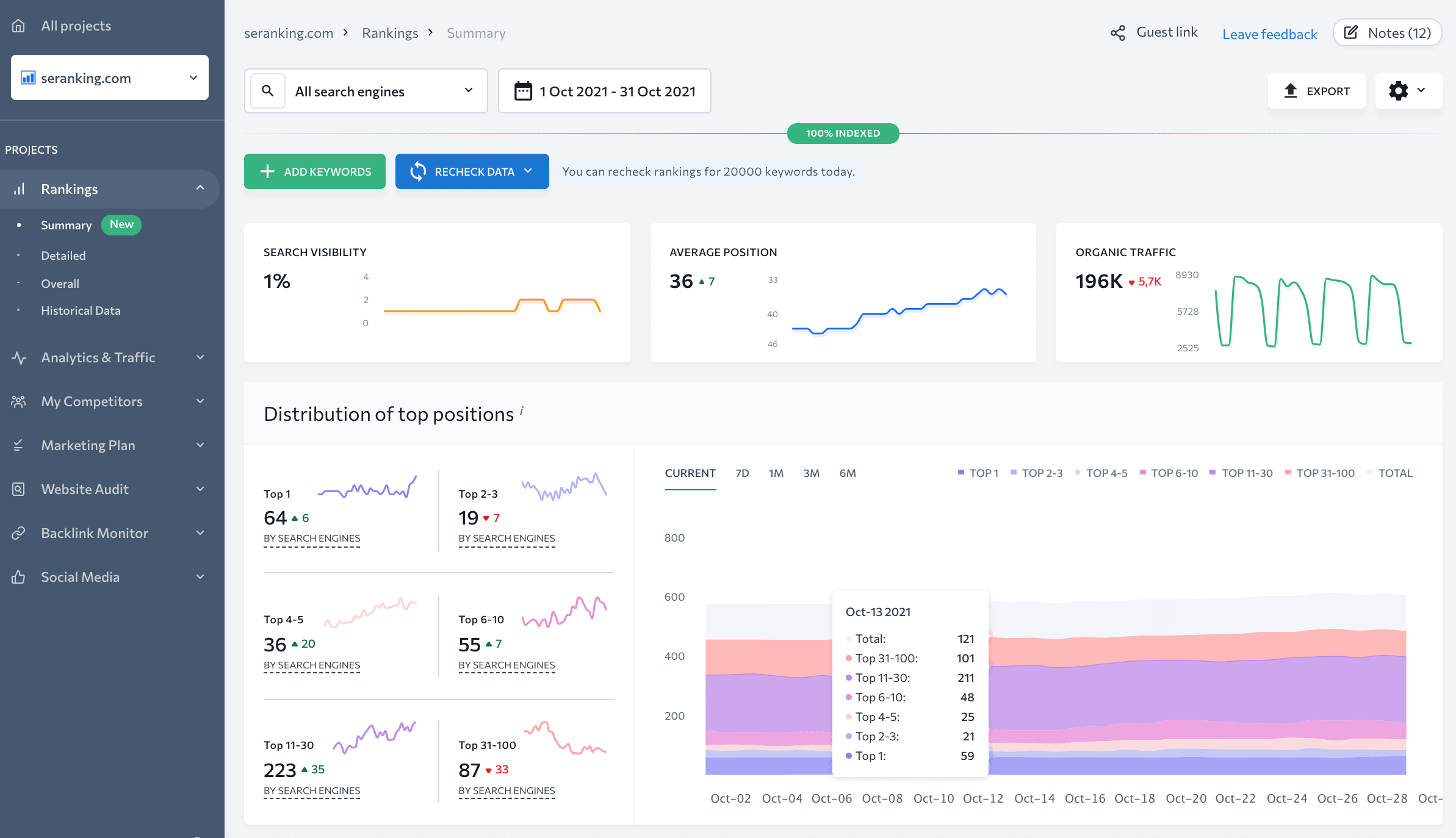
Best for: SMB marketers and agencies needing affordable all-in-one SEO with white-label reporting.
Key features snapshot
• Research • Rank tracking • Audits • Backlinks • Reporting • Local modules
Pricing
Essential $65/mo, Pro $119/mo, Business $259/mo; 14-day trial.
4. Serpstat
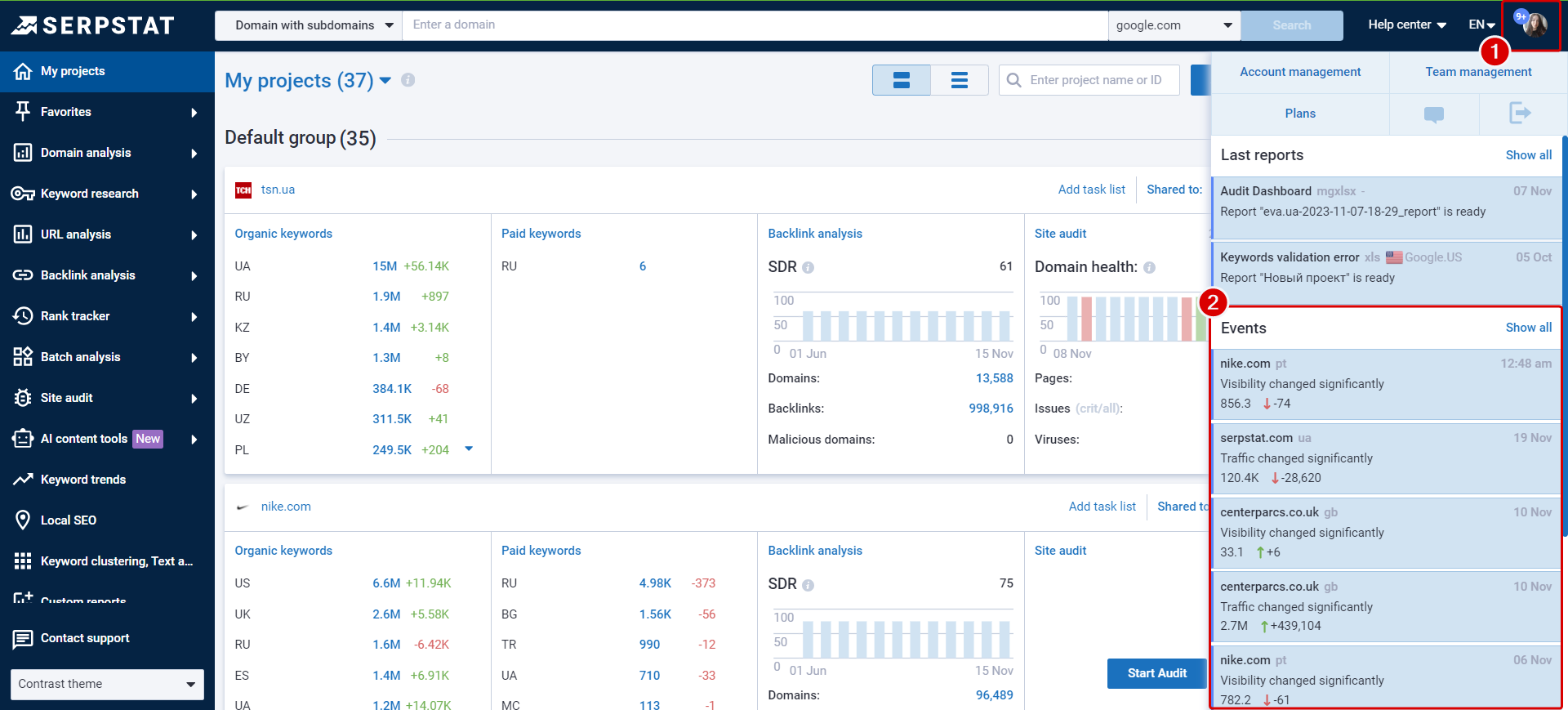
Best for: Budget-conscious SEO/PPC teams needing an all-in-one research suite.
5. SEO PowerSuite

Best for: Agencies and power SEOs needing unlimited desktop-scale audits, tracking, backlinks.
6. Sistrix SEO
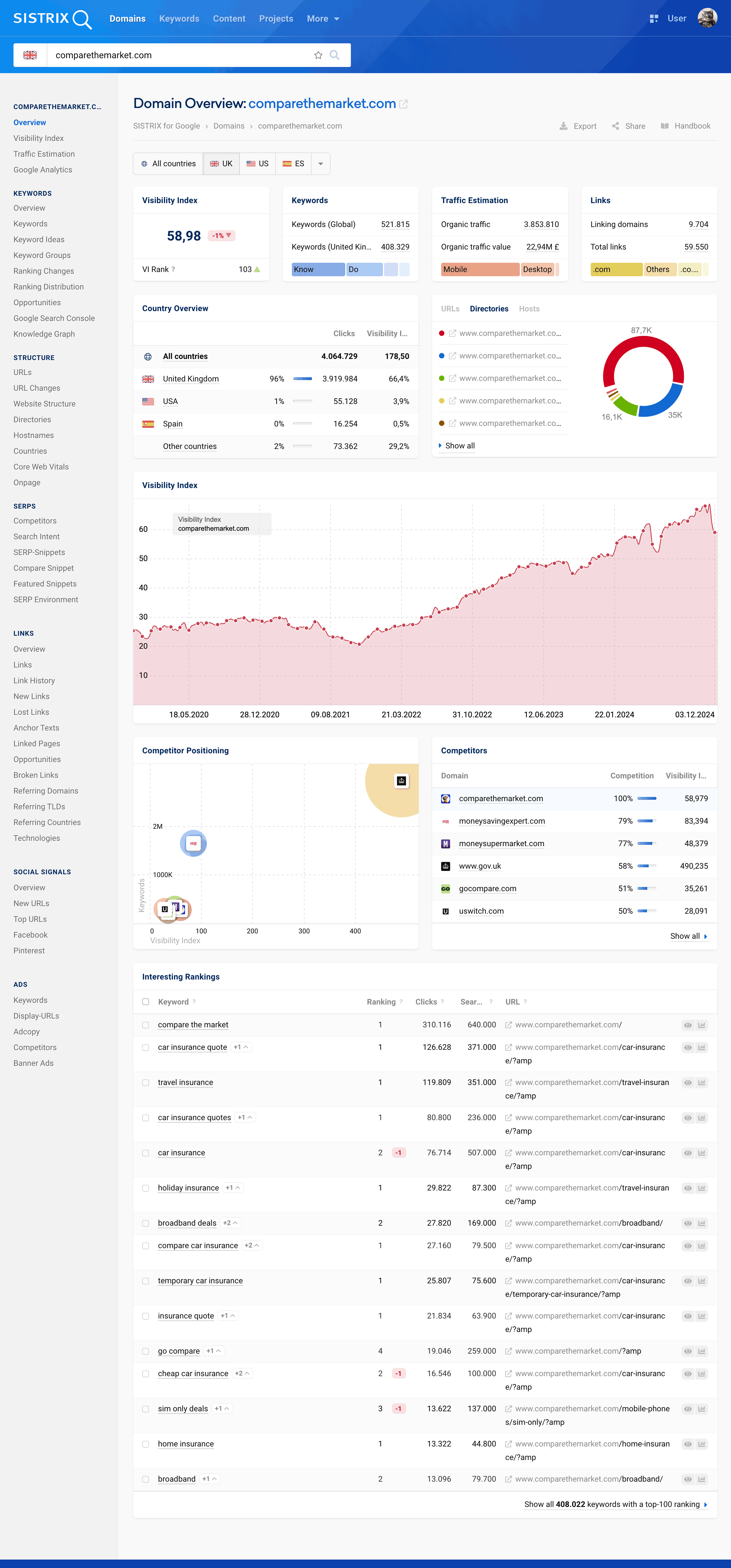
Best for: Visibility tracking, EU market depth, precise competitor benchmarking.
7. Searchmetrics Suite
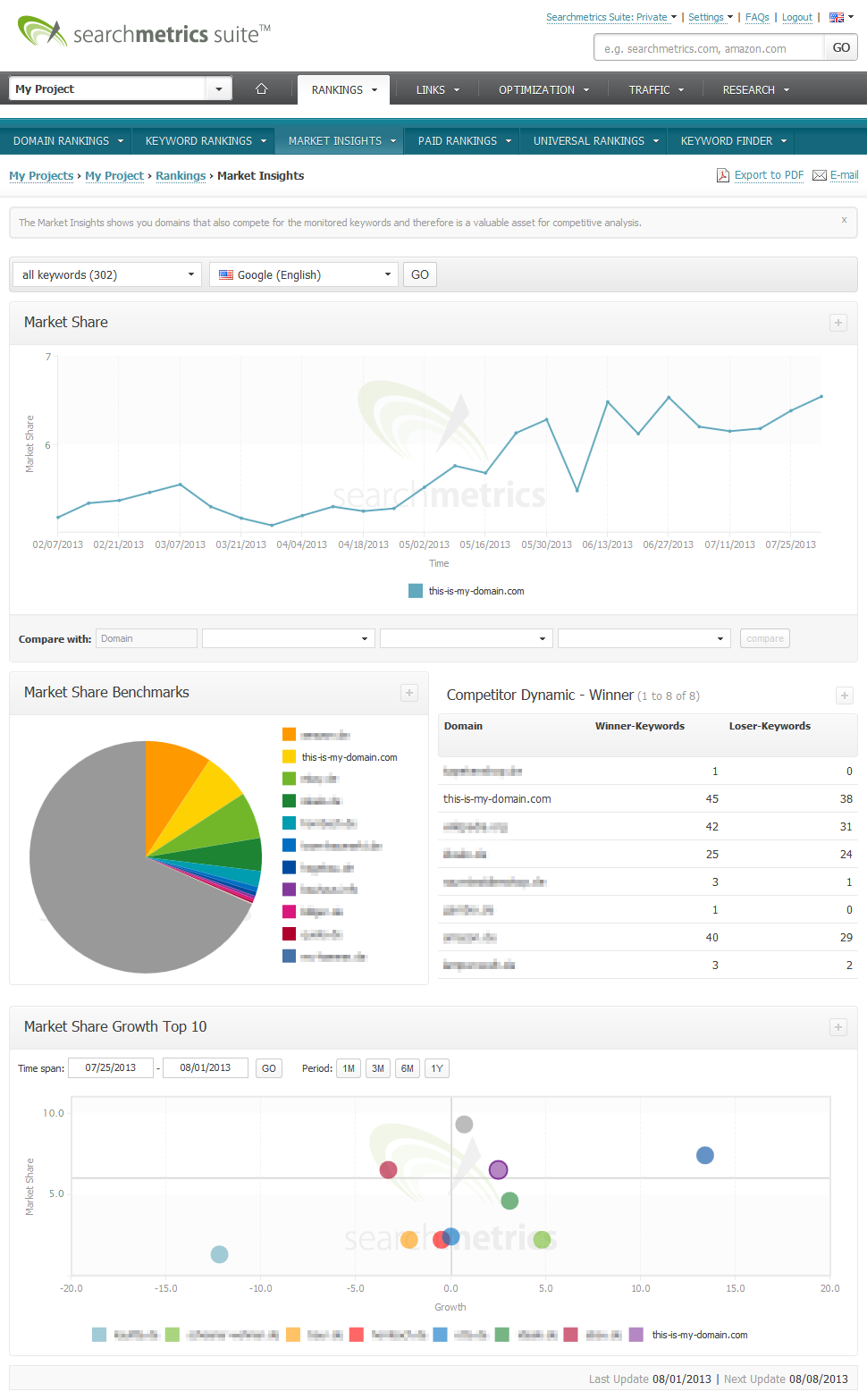
Best for: Enterprise SEO and content teams at global brands.
8. Mangools
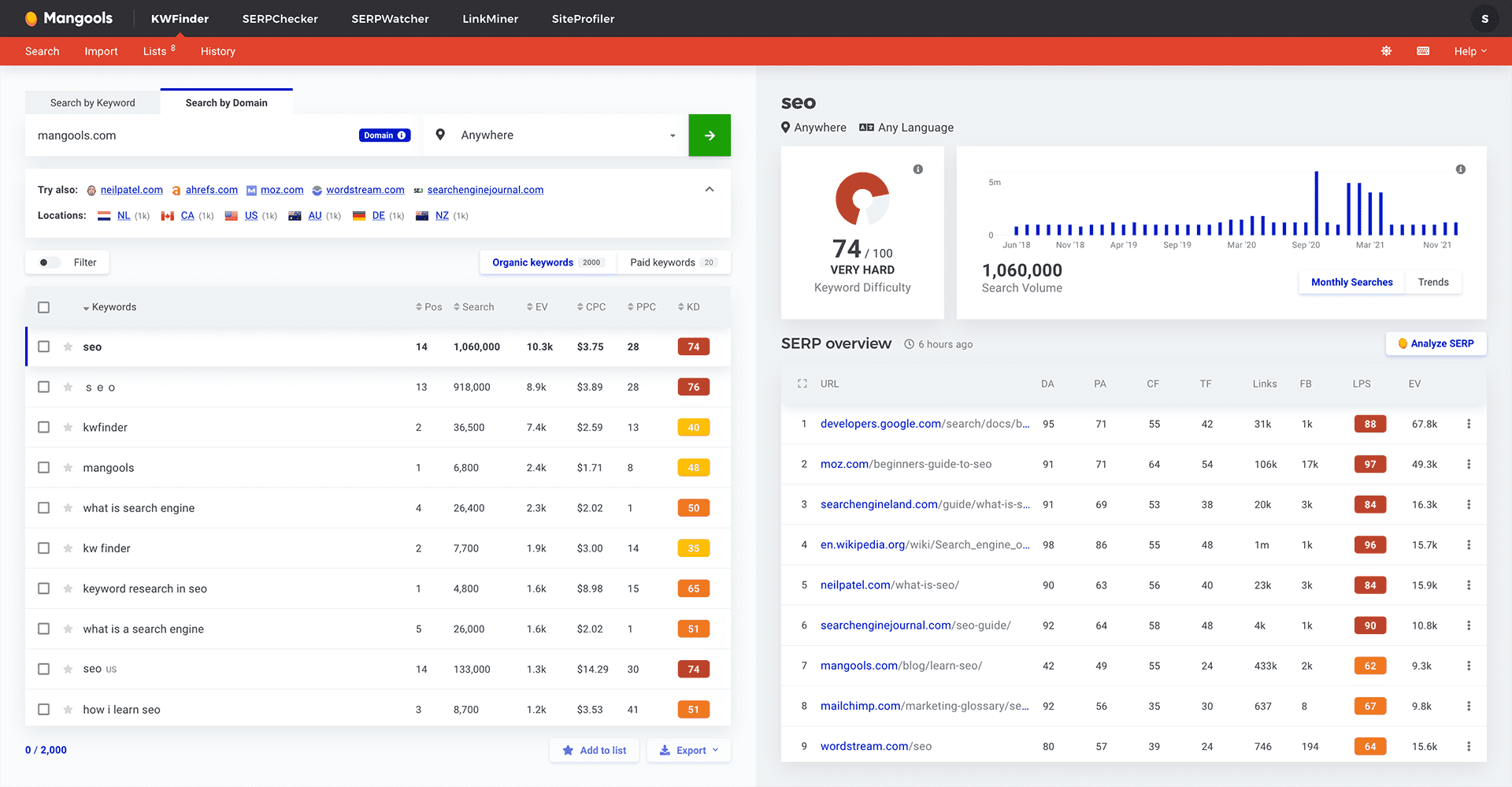
Best for: Solo SEOs and small agencies needing an easy, value-packed toolkit.
9. SpyFu
Best for: Competitive SEO & Google Ads research on a budget.
10. Seobility
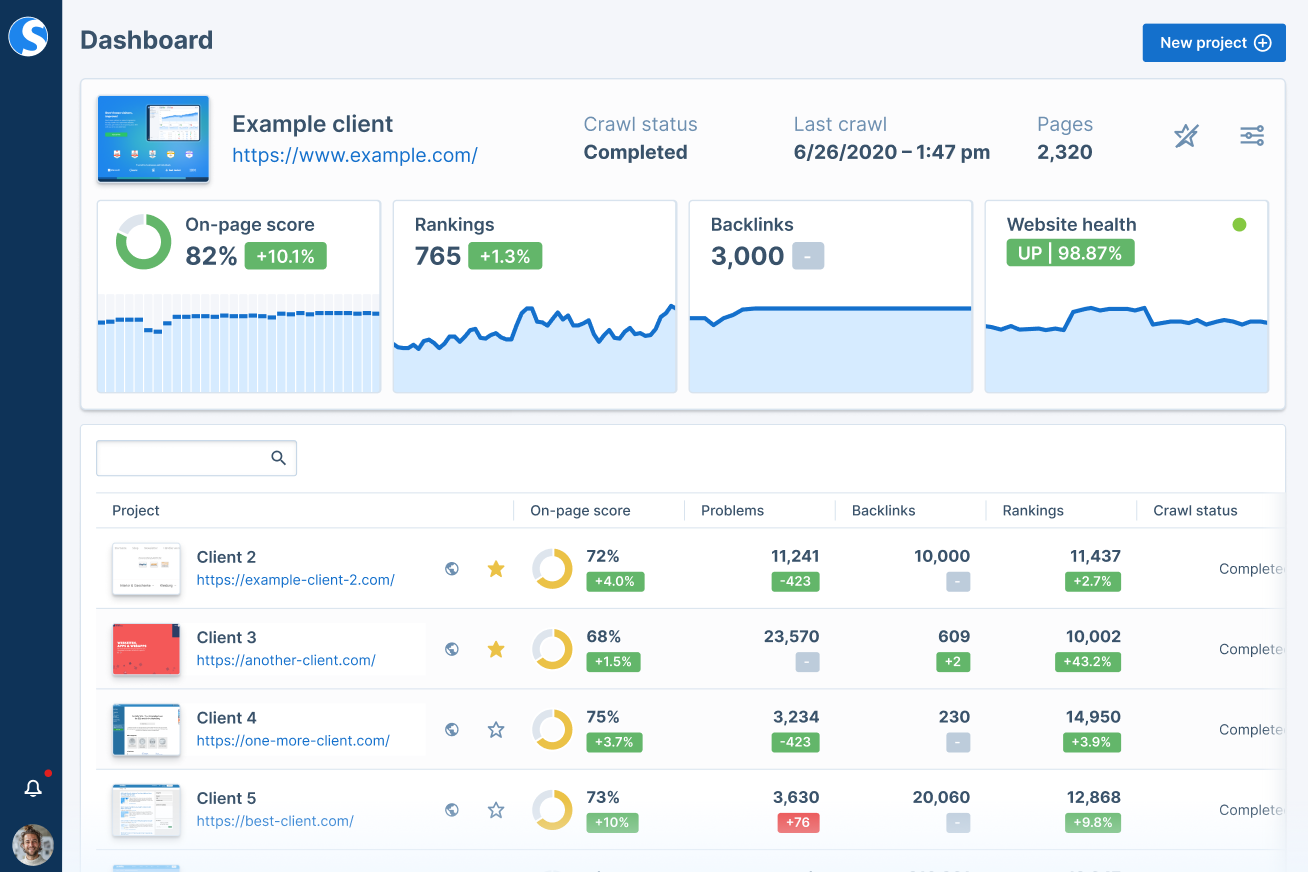
Best for: Small businesses needing a budget-friendly all-in-one suite with strong audits.
11. WooRank

Best for: Small agencies needing quick audits and white-label reporting.
12. cognitiveSEO
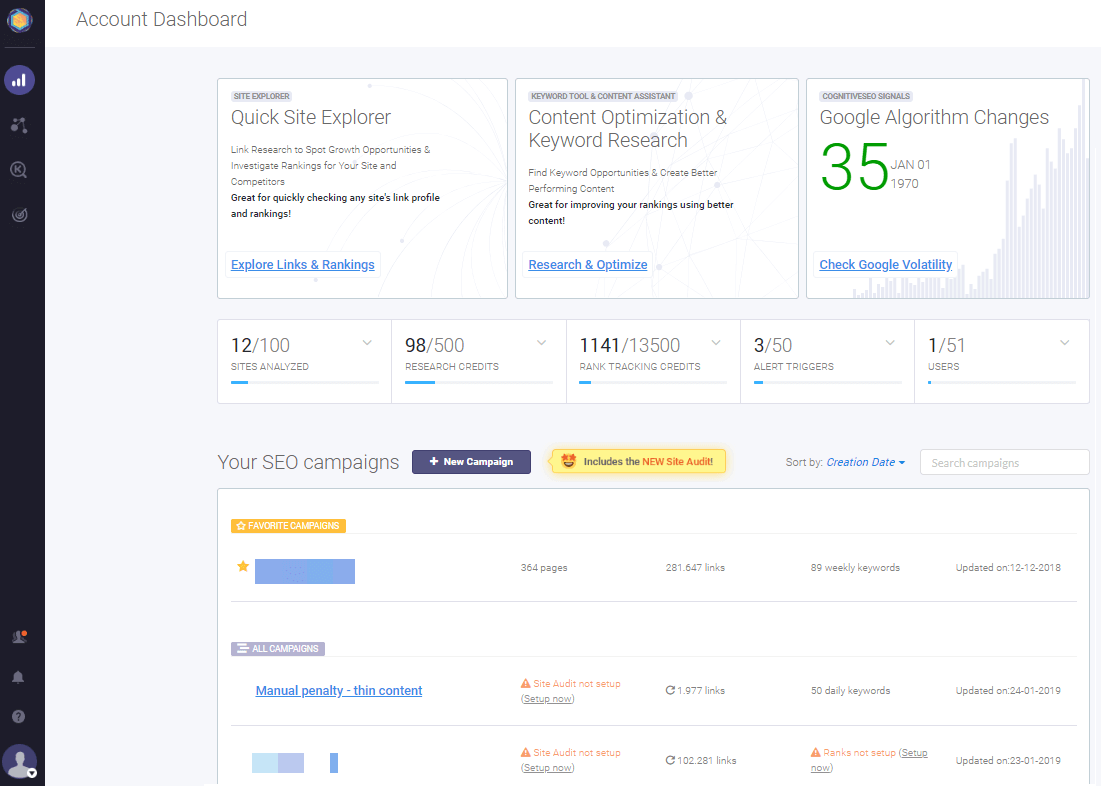
Best for: Deep backlink audits, penalty recovery, and multilingual content optimization.
13. Raven Tools
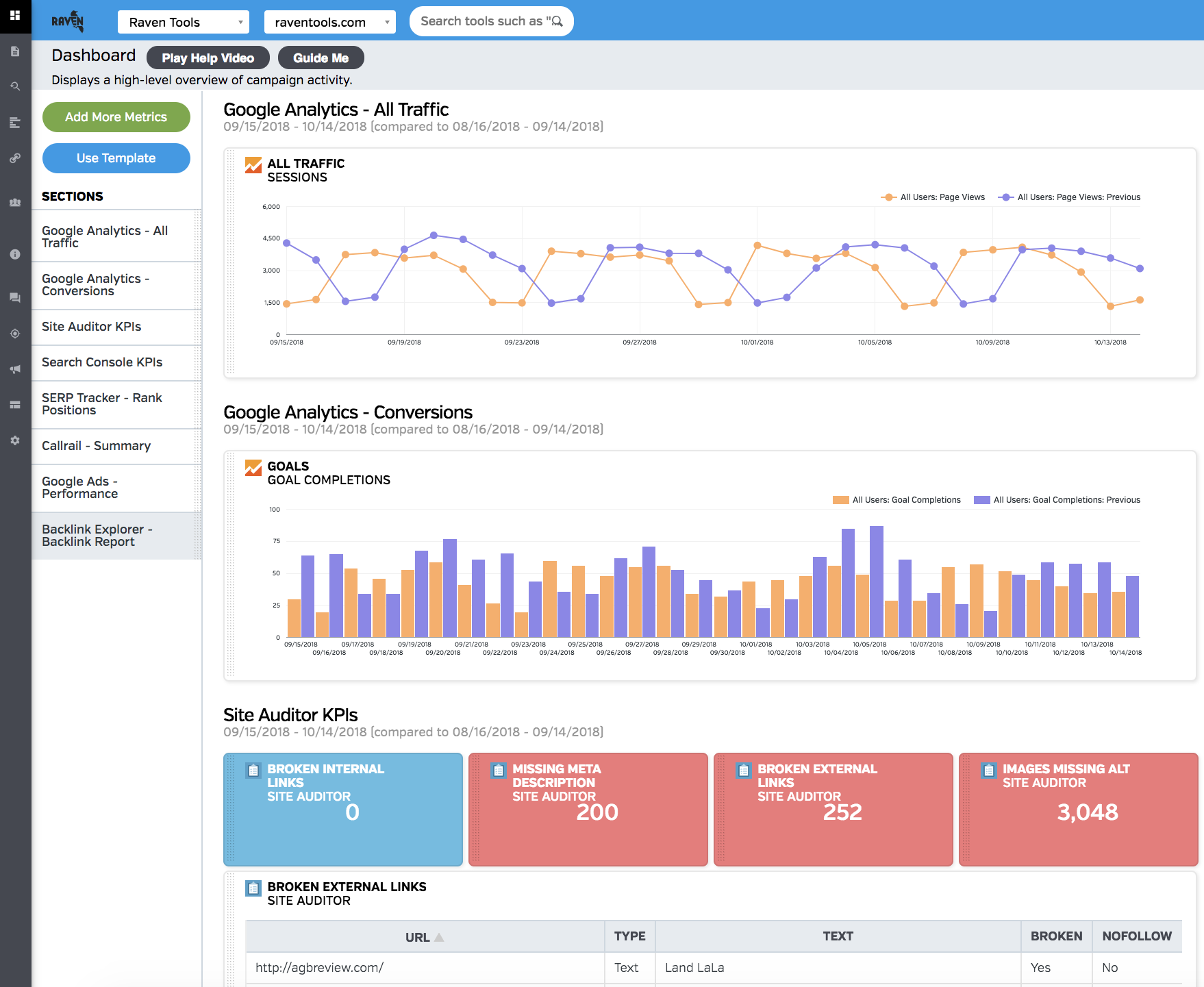
Best for: Agencies needing budget SEO utilities + client reporting.
14. Ranktracker
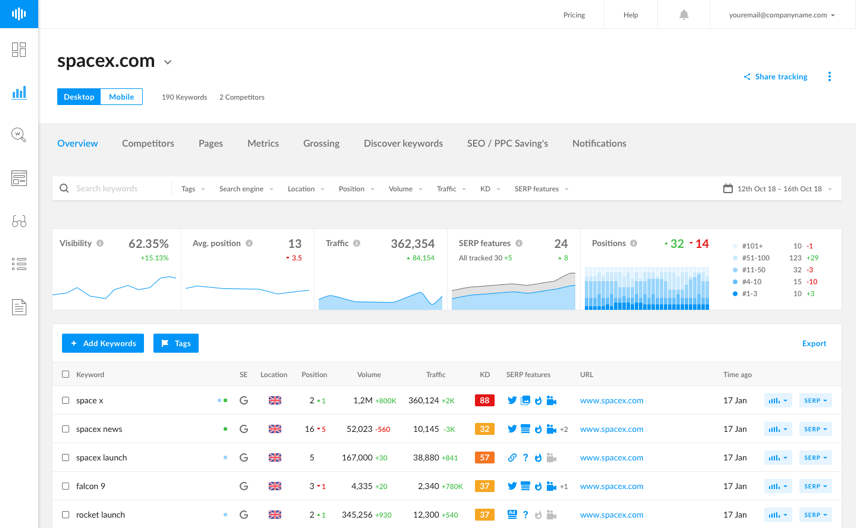
Best for: Budget-minded SEOs needing focused rank tracking + audits.
15. Ubersuggest
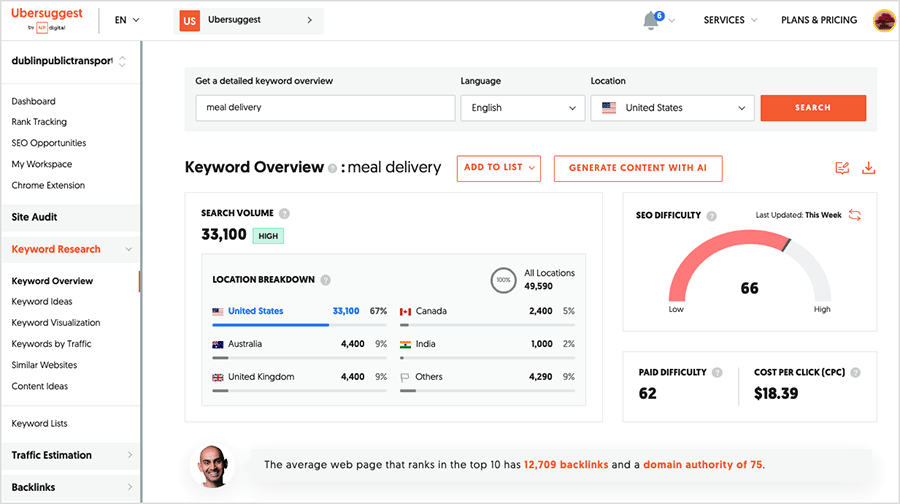
Best for: Solo marketers and SMBs needing simple, budget-friendly SEO research and tracking.
If Ubersuggest is on your shortlist, compare it against newer options in this roundup of Ubersuggest alternatives.
Conclusion
Make a short list with one option per category that matches your top job-to-be-done, then test for 2–4 weeks with clear success metrics (technical error reduction, content published, rankings gained, leads generated). If you want results without the operational lift, add RankAI to your shortlist: a fully managed SEO service that combines expert strategy with AI to deliver technical optimization, keyword research, and optimized content pages—plus monthly progress reports and dashboards. RankAI supports WordPress, Shopify, Wix, and Squarespace, and offers custom pricing that’s typically 5x more affordable than traditional agencies. Upcoming features include Google/Facebook profile management and backlinking strategies. Request a custom quote and see how fast you can move when the work is done for you.
FAQ
What’s the main difference between Semrush and a managed option like RankAI?
Semrush is a DIY toolset—you research, plan, and implement. RankAI executes for you: technical SEO audits and fixes, tailored keyword research (including competitor insights), and optimized content pages, all tracked in monthly dashboards.
Will I lose data or momentum switching away from Semrush?
Not if you plan the migration. Export historical keywords, backlinks, and position tracking, then map them to your new stack or hand them to RankAI for continuity in reporting and strategy.
How soon can I expect results with a Semrush alternative?
Technical fixes can yield improvements in weeks; content programs typically show compounding gains over 2–3 months and beyond, depending on competition and publishing cadence.
Can I mix tools with RankAI?
Yes. Many customers keep favorite tools (e.g., for rank tracking) while RankAI handles research, technical work, and content delivery, consolidating results into monthly reports.
I manage multiple client sites. What’s the best route?
If you need consistent execution and reporting across sites, consider Managed SEO (RankAI) to reduce tool sprawl and production bottlenecks. If you prefer hands-on control, pair a rank tracker with a technical crawler and a content optimizer.
Does RankAI support my CMS or store?
Yes—WordPress, Shopify, Wix, and Squarespace are supported. RankAI integrates workflows to optimize titles, meta descriptions, H1 tags, alt text, and content pages directly for your platform.
How does pricing work with RankAI?
Custom pricing based on scope (site size, content volume, growth goals), typically 5x more affordable than traditional agencies. You avoid common tool add-ons and seat fees, and you get monthly progress reports and dashboard analytics included.

